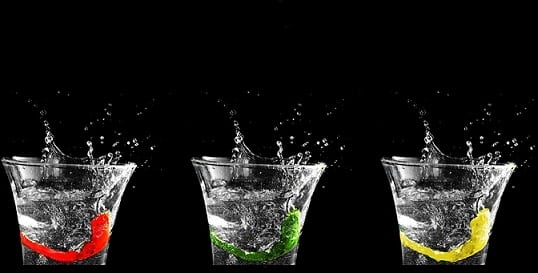 The United Nations World Water Assessment Programme (WWAP) released a Technical Paper on ˜Sex-Disaggregated Indicators for Water Assessment, Monitoring and Reporting’, within the framework of the 38th session of General Conference at UNESCO Headquarters, Paris recently.
The United Nations World Water Assessment Programme (WWAP) released a Technical Paper on ˜Sex-Disaggregated Indicators for Water Assessment, Monitoring and Reporting’, within the framework of the 38th session of General Conference at UNESCO Headquarters, Paris recently.
The Paper, which is part of the WWAP Toolkit for Gender Sensitive Water-monitoring, Assessment and Reporting, contains a list of high-priority indicators, innovative multi-user methodology, and a guideline manual and a questionnaire for practitioners in the field for collecting sex-disaggregated data in water-related issues.
At the 2014 Commission on the Status of Women, the need to tackle all forms of discrimination against women and girls was highlighted, and this includes who participates in, contributes to and benefits from water resource management.
Gender equality is essential for more inclusive and sustainable development, and this stands also for water resource management – to strengthen social inclusion, to eradicate poverty, to advance environmental sustainability and food security, and this report seeks to tackle information gap on water and gender, by exploring a series of indicators and methodologies on how to collect sex-disaggregated water data.
The report is the result of a collaboration between more than 30 international experts of the Working Group on Sex Disaggregated Indicators and WWAP, and it seeks to meet the requirements of the United Nations, as per the 2030 Agenda on Sustainable Development, with a clear emphasis on the need for data disaggregated by gender (cf UNGA Resolution A/70/L.1, 2015).
Gender equality is essential for more inclusive and sustainable development, and this stands also for water resource management – to strengthen social inclusion, to eradicate poverty, to advance environmental sustainability and food security. This is really important in developing countries where the woman or girl-child is usually the one responsible for collecting water for the whole family, sometimes at great cost to themselves.
Water access, availability and management is a great driver of for more inclusive and sustainable development, and can eradicate poverty, strengthen social inclusion, and advance environmental sustainability and food security; it can determine the way in which individuals and communities plan, envisage and shape their future.
The WWAP believes that no water assessment can be realistic without a gender perspective, and no decision-making is inclusive unless both women and men participate in the process, therefore the Toolkit captures quantitative and qualitative data on water and gender issues and provides the baseline for gender sensitive decision making in the water sector, with a view to promoting gender equality, which is a UNESCO priority.
This Report embodies the commitment we share to advancing human rights and sustainable development as a single agenda – to lay the foundation for a gender-equal water future for all. This has never been so important. Irina Bokova, Director-General of UNESCO
Get water cooler rental and purchase water coolers online from Living-Water. London bottled water coolers and mains fed water coolers.





